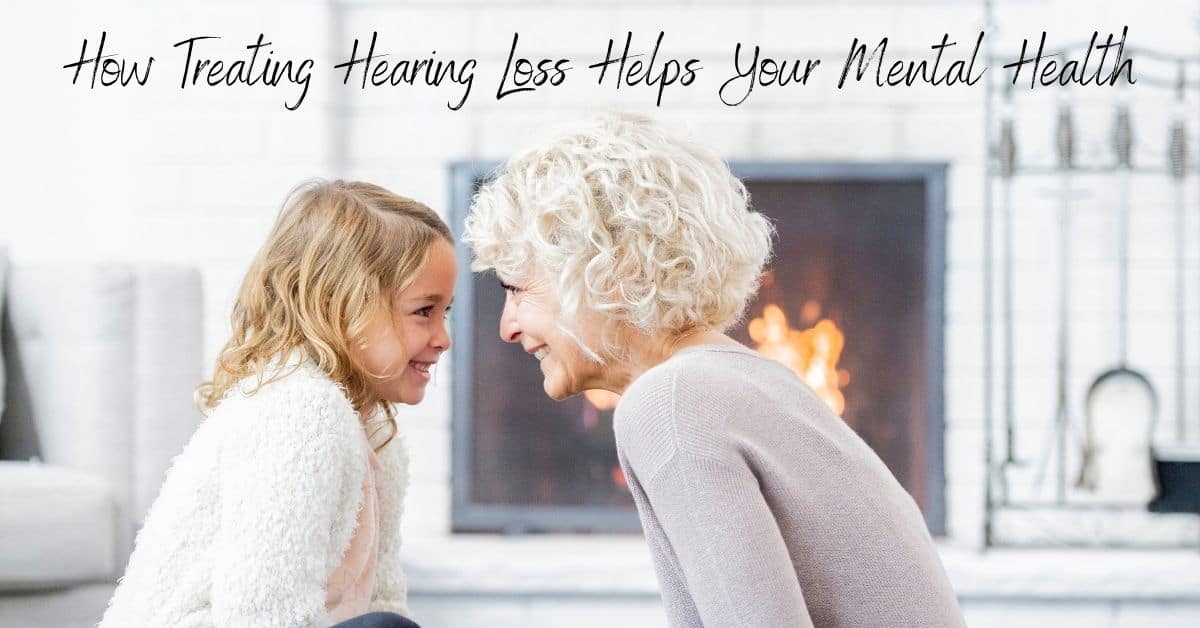We’re all finally waking up to the fact that hearing loss doesn’t just affect your ears. People living with untreated hearing loss face a number of other health challenges while they’re straining to hear. Hearing loss can lead to decreased mobility, more rapid cognitive decline, and even a higher risk of dementia.
Untreated hearing loss can also cause anxiety, social isolation, and depression. However, there is a solution! Treating hearing loss with quality hearing aids helps your mental health, and a new study proves it.
Studying Hearing Loss and Mental Health
A new study from Clear Living looks at how hearing loss affects mental health and wellbeing. The study shows how hearing loss harms mental health and social wellbeing. From 2019 to 2020, researchers collected survey answers from 3,700 website users. They asked questions about social and personal problems related to hearing loss and mental health.
The study found that 89% of survey participants said they had experienced social and personal problems due to their hearing loss. This included feelings of loneliness, and feeling sad they couldn’t connect with others. Close relationships came up a lot, and 58% of participants said their close relationships suffered, or even ended in a breakup. Participants also reported having a hard time following conversations, feeling isolated, and dealing with depression. 35% of participants also said they struggled with meeting friends in noisy public places, and couldn’t hear clearly with all the background noise.
Living with Hearing Loss: How Does it Feel?
If you have hearing loss, you know that making it through the day can be a struggle. You face communication issues and find yourself saying “what?” a lot. You ask people to repeat themselves, and still can’t understand what’s being said. Both you and your loved ones get frustrated that you can’t hear clearly, and you’re more easily irritated and upset. You may even stop communicating with your loved ones, preferring to sit in silence then get frustrated over not hearing.
Hearing loss also affects your work. When you can’t hear, it’s increasingly hard to do your job effectively. You have a hard time communicating with your coworkers and your boss.
If you have hearing loss, you probably find it very difficult to hear in places with a lot of background noise. Many of the study participants said they stopped going out to noisy restaurants or didn’t go to parties anymore. They also have a hard time hearing at home, and are constantly turning up the volume on the TV or phone.
The Health Outcomes of Hearing Loss
You might think these are all the problems you’ll face with hearing loss. However, living with untreated hearing loss can lead to a lot of negative health outcomes that aren’t directly related to your ears. If you’re living with untreated hearing loss, you can face:
- Stress
- Anxiety
- Poor sleep
- Compromised balance
- Reduced mobility
- Cognitive decline
- Memory loss
- Dementia
Your brain and your ears work together to help you hear. When you have hearing loss, your brain works overtime to help you make out the sounds around you. The brain gets tired straining to hear, and there isn’t always enough energy left for other tasks. This makes it even harder to regulate emotions or think clearly.
How Treating Hearing Loss Helps Your Mental Health
You don’t have to sit by and wait for depression to set in. You can do something about it! Treating hearing loss is one of the best things you can do, not only for your hearing health, but also for your mental health and overall wellbeing. Quality hearing aids reduce listening fatigue and give you back your energy. You’ll feel more alert, and be more social. You’ll also be able to hear conversations again, and participate in the activities you love.
With quality hearing aids from our hearing health professionals, you’ll enjoy great programs like background noise reduction, directionality microphones, and speech enhancement. Connectivity features can make it easy to hear the TV and phone. You won’t have to spend all your energy straining to hear, even when you’re in a crowded restaurant with friends. Hearing aids make it easy to hear, leaving energy for other mental tasks so you can get back to enjoying your life fully.


